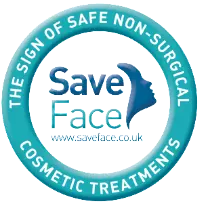The treatment introduces fine needles to the skin to create microscopic channels. In doing so the dermis is encouraged to produce new collagen and elastin which generates new skin cells.
When the skin is injured a repair process takes place to replace the damaged skin with new collagen and heal the wound. Medical needling leaves the epidermis (the upper most, ‘barrier’ layer of the skin intact, the micro injuries caused by sterile, fine, surgical needles, triggers a complex cascade of wound healing depositing new improved collagen, elastin and hyaluronic acid (the ‘bricks and mortar’ of healthy skin structure) providing firmer and more elastic skin.
Clinical studies have shown that micro needling produces channels in the dermis which sufficiently stimulate the body’s natural defenses to repair and produce concentrated amounts of collagen and proteins to the treated areas of skin. This results in the skins thickness being increased by up to 80% smoothing scars, visibly reducing stretch marks and reducing the appearance of wrinkles.
There are a variety of devises that may be used. Hand rollers- rows of surgical needles on a small hand roller, which are rolled back and forth over the skin to deliver 100's of controlled columns of micro-injuries. Derma stamps - a small hand tool with a block of needles which may be used to tap the skin repeatedly to apply the needle punctures.
Derma pens- a small machine evolved from tattoo machines which mechanically delivers rapid and multiple needle punctures as it glides over the skin.
A range of needle lengths may be used;
0.3mm may be used at home. The needles puncture the surface, barrier layer of the skin to enhance penetration of therapeutic serums and stimulate cell turnover.
Over time, real improvement of skin quality can be achieved with home devices. 0.5mm-1mm may be used by qualified beauty therapists and there is good evidence to suggest good results may be achieved with these needle lengths. 1.5mm needles will cause some pinpoint bleeding. Sterility and good infection control practise is essential. Also additional pain management, so these needle lengths should only be used by medically trained or supervised practitioners. 2mm needles are used to remodel scars and for thicker skinned areas such as the back, thighs and buttocks. Best results are achieved when prescribed skin care is used to support the skin healing process.
Caution: A multitude of devices are available to purchase on the internet. If they are cheap then they are likely to be poor quality and there is an increased risk of skin damage and infection, particularly when the needles are longer than 1mm. Results are achieved gradually over a period of months and three or more treatment sessions will be required to achieve optimum results. Results on scars are permanent, but for aging skin, maintenance treatments, one every 6 months are recommended.






